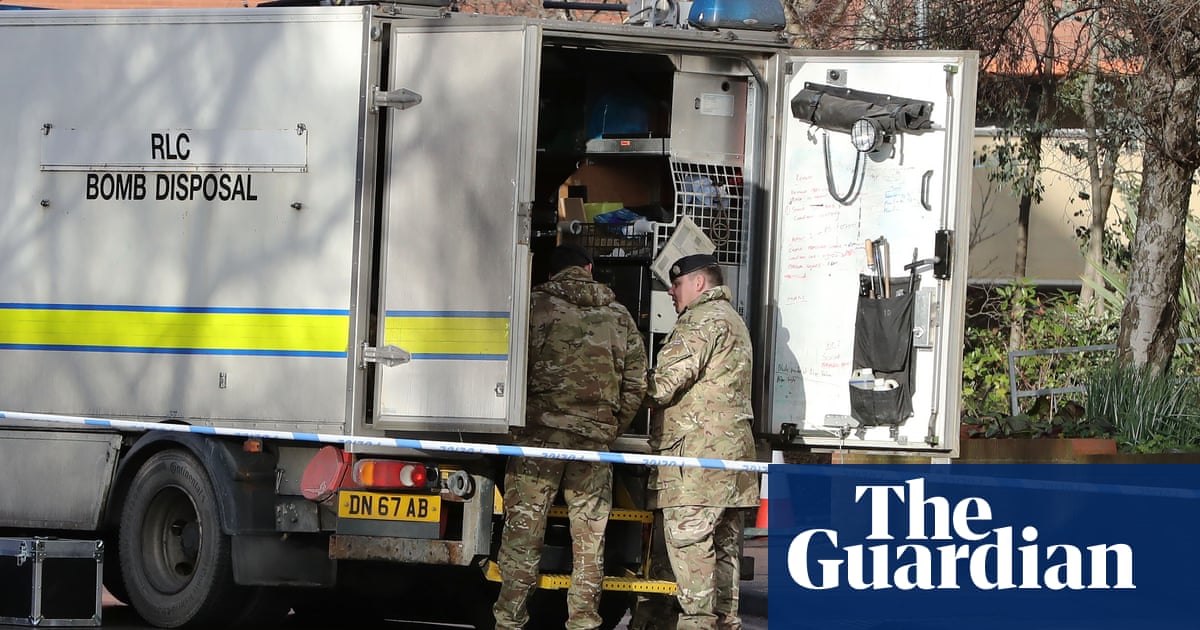
Three government departments including the Security Service, MI5, collaborated to help convict a group of construction workers who had gone on strike to try to improve their pay and safety measures, the appeal court has heard.
Lawyers for the 14 trade unionists, including the actor Ricky Tomlinson, told the court that the “higher echelons of the state” were responsible for helping to get them unfairly convicted for offences arising out of a strike 47 years ago.
They have been campaigning for years to clear their names, arguing that the establishment persecuted them to undermine the trade union movement.
On Wednesday at the start of a two-day hearing, their lawyers alleged that covert state agencies had worked together to secure their convictions for offences including affray, unlawful assembly and conspiracy to intimidate.
Tomlinson, then working in the building trade, was one of six men jailed after the 1972 strike. After his two-year jail sentence he left the construction industry having been blacklisted, and became a successful actor.
Piers Marquis, the barrister for Tomlinson and another trade unionist, Arthur Murray, said the covert agencies gave a dossier on leftwing trade unionists to the makers of a “highly prejudicial” television programme that was broadcast in 1973 during one of the three trials of the men.
He told Lord Justice Fulford that the ITV programme – called Red Under the Bed – unfairly influenced jurors when they decided to convict the men.
Marquis described how a secretive unit within the Foreign Office, the Information Research Department (IRD), “played a significant part in the production of the programme”.
The IRD was a cold war unit that spread anti-communist propaganda throughout the world. “Part of its remit was to provide anti-communist material to journalists for broadcast and dissemination,” he said.
Marquis cited a memo from the head of the IRD who wrote “we had a discreet but considerable hand in the programme”, which was made by Woodrow Wyatt, a rightwing journalist.
“Wyatt was given a large dossier of IRD background material with the agreement of the Department of Employment and the Security Service … It is clear from the programme that Mr Wyatt drew extensively on that material,” he said.
He cited another official memo which showed that the then prime minister, Edward Heath, had commented after being shown a transcript of the programme: “We want as much as possible of this.”
According to prosecutors in the original trials, the trade unionists intimidated other workers during the strike. Marquis said the programme sought to suggest that leftwing activists manipulated trade unions and used violence.
He said the programme clearly referred to the defendants and associated them “firstly with communism and subsequently with the overthrow of the state by means of violence”.
Marquis said: “At least three branches of government (the IRD, as part of the Foreign and Commonwealth Office, the Department of Employment and the Security Service) provided material to Woodrow Wyatt that directly impacted on the subject matter of high-profile and politically important criminal proceedings.”
Danny Friedman QC, representing 12 of the pickets, said: “It is clear now that the higher echelons of the state bore responsibility for deliberate covert involvement in the production of the programme.”
He said that in 1972 the trade unionists had taken part in the first nationwide strike of building workers to improve the safety of “unacceptably dangerous” construction sites.
The case continues.












